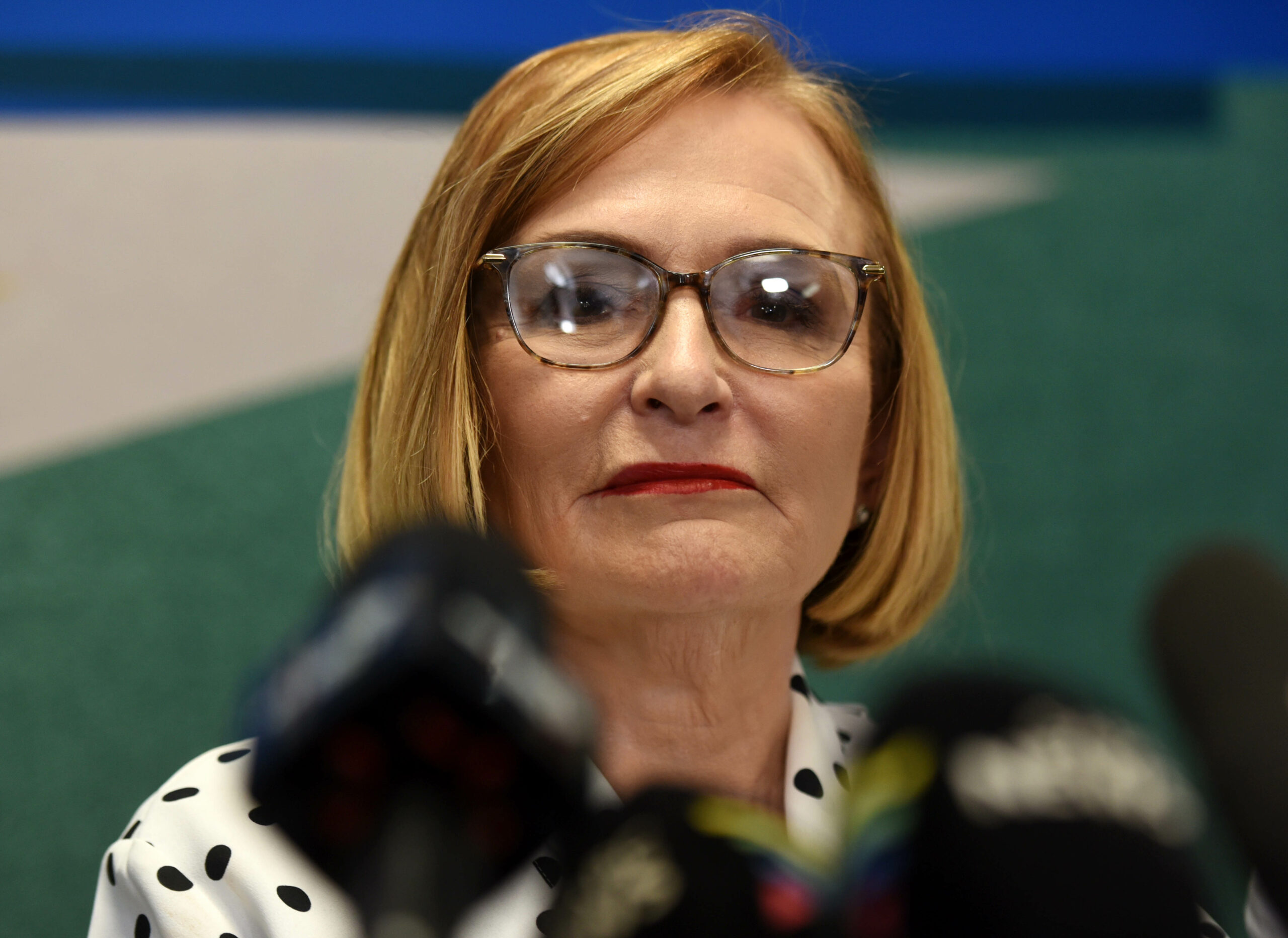The former DA leader, who Athol Trollip by just seven votes to become federal council chair, will now set the tone for the party's future.

Helen Zille. Picture: Nigel Sibanda
Former Democratic Alliance (DA) chief whip John Steenhuisen’s rise to the position of the party’s parliamentary leader may be the first step for those in the party loyal to newly elected federal council chairperson Helen Zille to remake the DA in their image.
While Zille beat her closest rival – Athol Trollip, who resigned as the party’s federal chairperson this past Wednesday – by a tiny margin of only seven votes, her victory will give those within the party who are loyal to her, largely the same people who wanted former leader Mmusi Maimane gone, a chance to set the tone for the party’s future.
The Sunday Times reports that Zille’s supporters within the party are clear on who they want in the party’s most powerful positions, and further reports that they all happen to be white.
They include, according to the publication, Steenhuisen – already elected unopposed to replace Maimane as the DA’s leader in parliament – MP Natasha Mazzone, who is tipped to step into the role Steenhuisen occupied before, of chief whip, and MP Geordin Hill-Lewis, who is a favourite to replace Paul Boughey, who stepped down as the party’s CEO.
WATCH: Clip of Zuma predicting Maimane’s DA exit resurfaces
However, the publication reports that those tipped to possibly become the party’s new leader include DA KwaZulu-Natal leader Zwakele Mncwango, Gauteng leader John Moodey and MP Ivan Meyer, none of which are white.
It’s therefore possible that the party’s structures will resemble, at least in terms of racial demographics what they did before Maimane’s departure.
Steenhuisen has also been tipped, as he himself pointed out on 702, but what impact his election as parliamentary leader will have on his prospects is unclear – Maimane occupied both positions before his departure.
And City Press reported on Sunday that it sees slightly different people battling out for the DA leadership than the Sunday Times.
While it mentions Mncwango and Steenhuisen, it also ponders on whether former head of policy Gwen Ngwenya – who is very popular in the Zille camp – will make a comeback, and also mentions MP Mbali Ntuli as having said she had been approached by several people to take on the role of the party’s interim leader, which will be voted for on November 17.
Predictions – from those both inside and outside the party – of a “black exodus” following Maimane’s departure, have so far proven unsubstantiated.
Those who have announced their intention to stay on despite Maimane’s departure include Mncwango, DA Western Cape leader Bonginkosi Madikizela, Eastern Cape leader Nqaba Bhanga, MP Phumzile Van Damme, and MLP Makashule Gana.
Maimane’s departure followed a report recommending that the party convenes an early congress “to allow for the election of a new leader”, also suggesting that Maimane should “consider” stepping down.
This after the DA lost roughly 400,000 votes in this year’s elections, the first since 1994 in which the party failed to grow.
The special review report, compiled by a panel consisting of former DA chief strategist Ryan Coetzee, former leader Tony Leon and Capitec Bank founder Michiel le Roux, called not only for Maimane to “consider” stepping down but for chairperson of the party’s federal council leading during the election campaign – James Selfe, as well as DA CEO Paul Boughey to do so too.
However, both Selfe and Boughey had already left the DA prior to the report’s release.
READ MORE: Maimane’s future uncertain amid rumours of ‘black exodus’ from DA
The party’s election results aside, Maimane found himself on the wrong side of what they call the ‘1959 faction’ – a reference to the year Helen Suzman broke away from the United Party to form the Progressive Party – also known as the party’s “true liberals” or classical liberals.
This section of the DA does not believe in race-based policies, and butted heads with Maimane over this issue as well comments he made about white privilege at a DA rally in Soshanguve, Pretoria last year.
Rumours have been circulating about those within the party wanting Maimane to step down even before the elections. It was reported back in January that if the party didn’t grow beyond 22%, it was believed that Maimane’s detractors would seek to use this as a reason for his removal.
Prior to the DA’s current crisis, classical liberal think tank – the Institute of Race Relations (IRR) – launched a campaign to “save the opposition”, focusing on the DA alone, and are also believed to be among those who advocated for Maimane to step down. Zille joined the IRR as a senior research fellow, stepping down a few months later to rejoin politics and run for the role of federal council chairperson, and her victory is seen as a win for the party’s classical liberals and those who wanted Maimane gone.
(Compiled by Daniel Friedman.)
For more news your way, download The Citizen’s app for iOS and Android.
Download our app